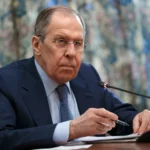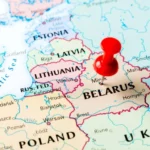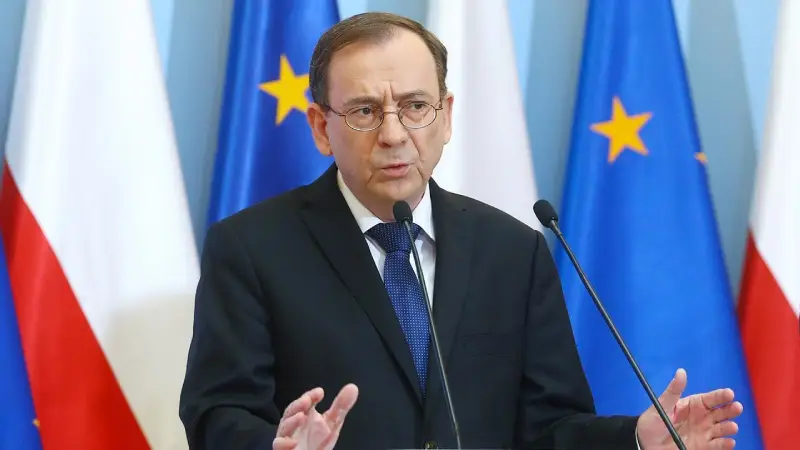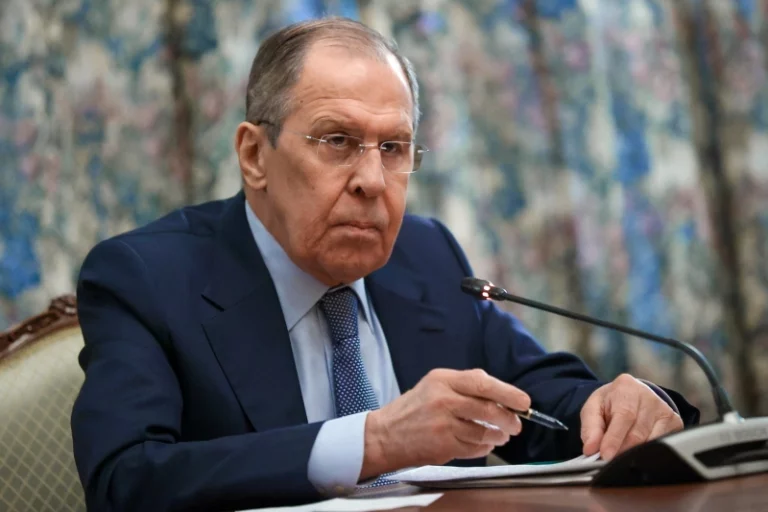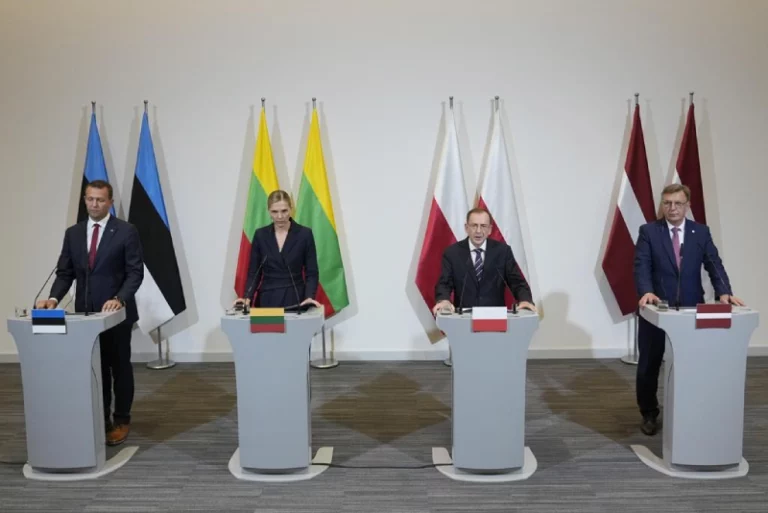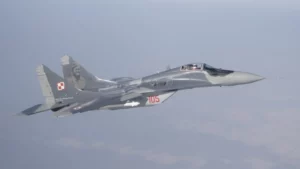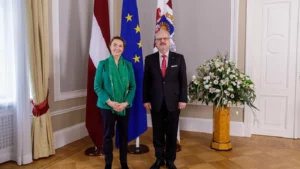The recent foiled plot by Russia to sabotage Poland‘s train lines to disrupt the supply of weapons and aid to Ukraine has significant implications for the diplomatic and economic relations between the two countries.
Poland’s Interior Minister Mariusz Kaminski revealed that the country’s Internal Security Agency arrested nine foreign agents suspected of spying for Russia. These agents were preparing to carry out sabotage actions aimed at paralyzing the supply of equipment, weapons, and aid to Ukraine.
The move comes as Poland becomes the first NATO member to pledge fighter jets to Ukraine.
Further strains in relations
Poland’s defense minister, Mariusz Blaszczak, suggested that the group had entered the country from neighboring Belarus, a close Russian ally that shares a border with NATO member Poland.
This could further strain relations between Belarus and Poland, which have been tense in recent years due to Belarus’ human rights record and its alleged support for Russian aggression against Ukraine.
The arrest of the Russian agents has also heightened tensions between Poland and Russia, which have had a long and tumultuous history. Poland has suffered invasions and occupations by Russia for centuries and still fears Russia despite being a member of NATO. The recent foiled plot is yet another example of Russia’s increasingly aggressive intelligence activities and its attempts to interfere with Poland’s sovereignty.
Poland’s response
In response to the foiled plot, Poland expelled three Russian diplomats and accused Russia of violating international law. Russia denied any involvement in the plot and accused Poland of making baseless allegations. This has further strained relations between the two countries and could potentially lead to further diplomatic and economic consequences.
Poland’s expulsion of the Russian diplomats is likely to affect economic relations between the two countries. Russia is Poland’s second-largest trading partner after Germany, and the two countries have significant economic ties. Poland is a major importer of Russian oil and gas, and any disruption to this trade could have significant economic consequences for both countries.
The foiled plot also highlights the importance of secure and stable supply chains and the need for countries to remain vigilant against foreign intelligence activities that could disrupt them.
Supply chain disruption
The disruption of the supply chain could have led to a shortage of weapons and aid for Ukraine, thereby affecting the country’s ability to defend itself against Russian aggression. This could have caused a ripple effect, impacting the stability of the entire region and potentially leading to further conflicts.
Moreover, the foiled plot has implications for the wider international community, particularly NATO and the EU. Poland’s role as one of Ukraine’s most vocal allies since the outbreak of the war has been crucial in persuading other European nations to supply heavy weapons, including tanks, to Kyiv.
The disruption of the supply chain could have caused delays in the delivery of these weapons, potentially weakening Ukraine’s defense capabilities. This could have impacted NATO’s security interests in the region, which has been a contentious issue between Russia and the West.
At odds
The recent incident is not the first time that Russia and Poland have been at odds. In 2010, a plane carrying then-Polish President Lech Kaczynski crashed in Russia, killing all 96 people on board. Polish officials have long suspected that the crash was not an accident and that Russia may have been involved. Russia denied any involvement and accused Poland of making baseless allegations.
In 2014, Russia’s annexation of Crimea and support for separatists in eastern Ukraine further strained relations between the two countries. Poland was one of the most vocal critics of Russia’s actions and has been a strong supporter of Ukraine ever since.
The recent foiled plot is yet another example of Russia’s attempts to interfere with Poland’s sovereignty and its support for Ukraine.
The arrest of the Russian agents also highlights the challenges that Poland faces in balancing its relationship with Russia and its alliance with NATO and the EU. Poland has significant economic ties with Russia, but it also sees Russia as a security threat. This balancing act has become increasingly difficult in recent years as Russia has become more assertive towards its neighboring countries.
Furthermore, the arrest of nine Russian saboteurs by Poland highlights the ongoing tensions between the two nations. The Polish government has accused Russia of attempting to sabotage its railway lines in order to disrupt the supply of weapons and aid to Ukraine.
The arrest of the nine suspects is likely to strain relations between the two countries further, and may lead to further diplomatic and economic measures being taken.
For Poland, the arrest means a significant victory for its security services. It is also a reminder of the ongoing threats posed by Russia to its sovereignty and territorial integrity. The Polish government has been one of Ukraine’s most vocal allies in the ongoing conflict in the east of the country.
Its support for Ukraine has been instrumental in persuading other European nations to supply weapons to Kyiv. The Polish government’s decision to supply Ukraine with German-made Leopard 2 tanks and plans to outfit them with a squadron of MiG-29 fighter jets further demonstrates its commitment to supporting Ukraine in its fight against Russian-backed separatists.
For Russia, the arrest of the nine agents is likely to be seen as a significant setback. It is also likely to lead to further diplomatic and economic sanctions being imposed on the country. The ongoing tensions between Russia and the West have had a significant impact on the country’s economy in recent years.
The imposition of economic sanctions by the EU and the US has had a negative impact on Russia’s energy and financial sectors. The ongoing conflict in Ukraine has also had a negative impact on the country’s economy, with the cost of supporting the separatist rebels and the annexation of Crimea taking its toll.
Further tensions
The arrest of the nine Russian agents by Poland is likely to lead to further tensions between the two countries. However, it is important to note that both countries have much to gain from maintaining good relations.
Poland is a member of the EU and NATO, and as such, has a significant role to play in ensuring regional security. Russia, on the other hand, is a major economic power, and has significant natural resources, including oil and gas reserves. Despite the ongoing tensions between the two countries, there are still opportunities for cooperation in areas such as energy, trade, and security.
In the short term, it is likely that the arrest of the nine Russian agents will lead to further diplomatic and economic measures being taken by both countries. However, it is important that both sides engage in constructive dialogue to resolve their differences and build a more stable relationship.
The ongoing conflict in Ukraine has highlighted the need for a more collaborative approach to regional security, and it is important that both Russia and Poland play a constructive role in this process.
